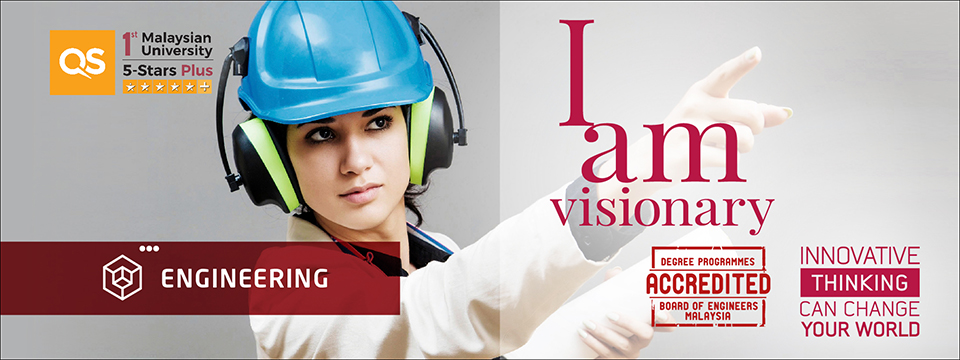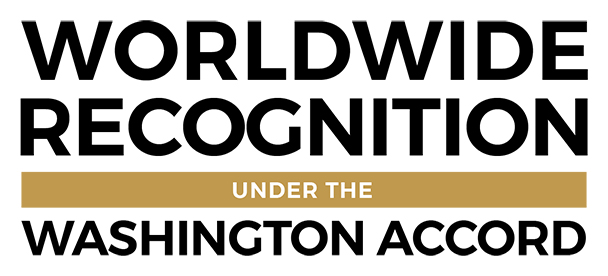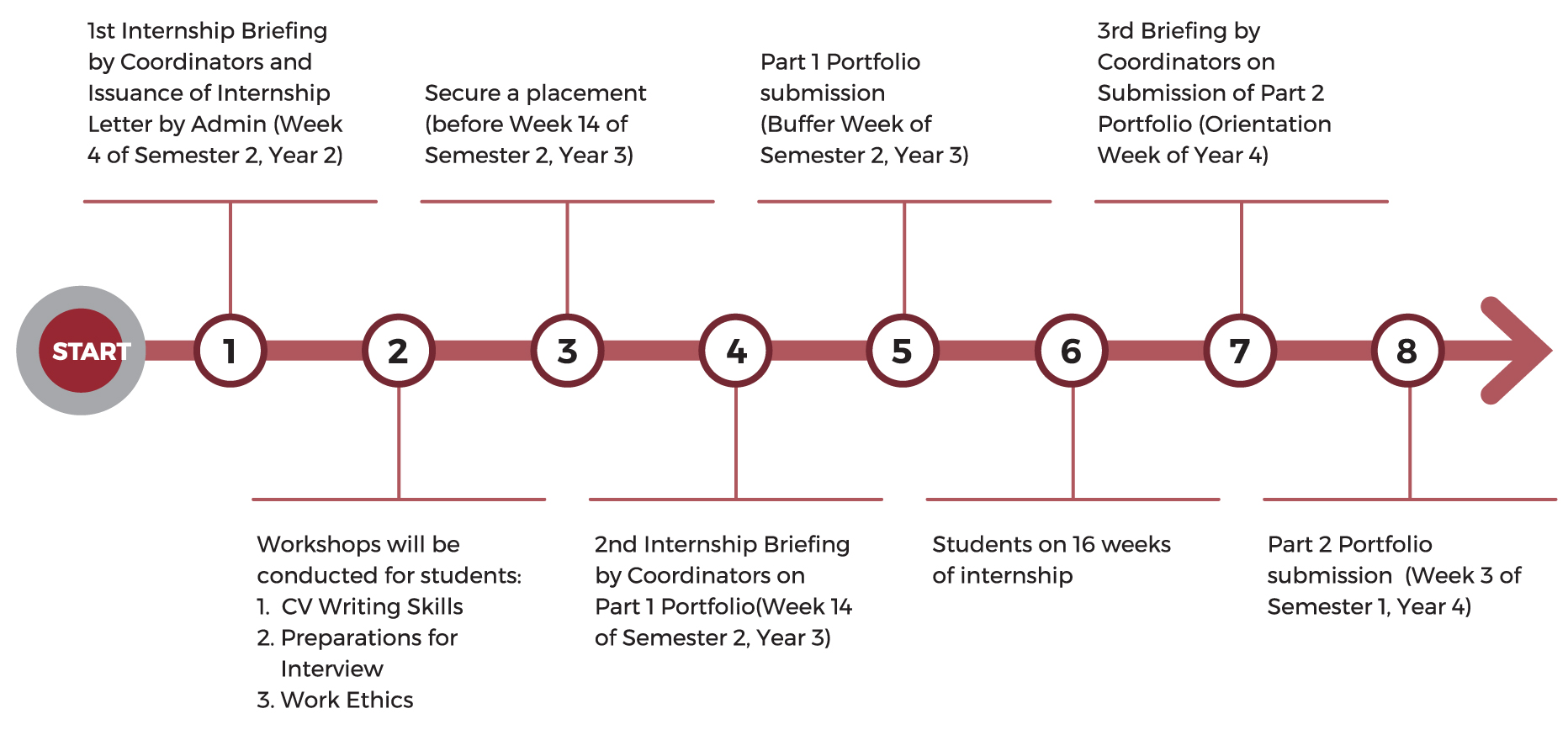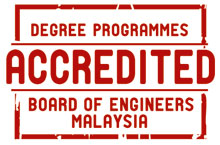You are here
Engineering


The School of Engineering at APU is one of our fastest growing schools and is gaining popularity among school leavers. This is because all the five engineering programmes offered by the School are current in terms of technology and are market driven, and thus have great employment opportunities.
The vision of the School is to be a leading provider of Engineering and Technology based education with innovative approaches to enhancing lifelong career opportunities. This is emphasised by our mission to provide engineering education based on a theoretical, experimental, and ethical foundation and enhanced by opportunities for participation in research, internships and interdisciplinary study.
For all degrees within the School, APU links with industry helps provide internship training placements for students. Internships are compulsory for all students as per the requirement of the Board of Engineers Malaysia.

APU Engineering Degrees are fully accredited by the Board of Engineers Malaysia (BEM) which is a signatory to the Washington Accord. |

The goals of the APU engineering programmes are to:
- Be equally adept at knowledge acquisition and practice appropriate to their professions.
- Be able to apply their expertise in diverse cultural settings both locally and internationally.
- Be the providers of solutions.
- Be equipped with entrepreneurial skills.
- Have a capacity for reflection, self management, self development and continuous learning.
- Place the interest of clients and employers foremost.
- Represent their professions ethically and with dignity.
APU Engineering Degrees are accredited by the Board of Engineers Malaysia (BEM).
The Board of Engineers Malaysia (BEM) is a federal statutory agency under the Ministry of Works Malaysia established under the Registration of Engineers Act 1967 (REA 1967). Amongst its primary roles are to register Graduate Engineer (GE), Engineering Technologist (ET), and Inspector of Works (IoW) and to regulate the professional conduct and practice of registered Persons to safeguard the safety, health and interest of the public.
For more information on BEM, please refer to the following links:
1. BEM Official Website
2. Mandatory Registration with the Board of Engineers Malaysia
3. BEM Mini Convention Presentation Material
4. BEM Webinar Presentation Material
5. BEM Official Youtube Channel
| The Five "I"s Model | |
1: INNOVATION | through the design of curriculum, the module content and the learning approaches |
2: INTEGRATION | through developing your capabilities to interrelate knowledge and to work in multidisciplinary teams |
3: INFORMATION | through developing your knowledge and also your abilities to communicate effectively and persuasively |
4: INTERACTIVITY | through the use of group work to develop your teamwork skills and through the use of technology to achieve interactivity of devices and people |
5: IMAGINATION | in relation to new products, ideas, applications and solutions |
Engineering Programmes:
Bachelor of Electrical and Electronic Engineering with Honours |
An Electrical or Electronic Engineer maybe responsible for research, design, development, manufacturing and management of complex hardware and software systems and reliable, cost effective devices, many involving the use of new information and computer intensive technologies. These include:
|
|
Bachelor of Mechatronics Engineering with Honours |
Mechatronics Engineering is concerned with the creation, design and building of intelligent machines. This new breed of engineer has to master skills in mechanical, electronic and computer engineering and work in a hybrid manner, meeting an ever-increasing need in industry where complexity of projects is rising and resources are limited. The main areas of activity are:
|
|
Bachelor of Mechanical Engineering with Honours |
Mechanical Engineer plays a vital role in various industries by applying their expertise in designing, analysing, and maintaining mechanical systems and devices. This profession is at the heart of innovation, as mechanical engineers contribute to the development of cutting-edge technologies and the improvement of existing systems. Here's a brief overview of the role of a Mechanical Engineer:
|
|
Bachelor of Petroleum Engineering with Honours |
Petroleum engineers travel to where petroleum reservoirs are known to exist. They define and develop the reservoirs, and produce oil and gas with maximum profitable recovery. Petroleum engineering allows one to specialise in several different oil & gas specialties, each with its own unique challenges and rewards. The careers and job activity areas are as a:
|
|
Bachelor of Computer Engineering with Honours |
Computer engineering has emerged as a driving force addressing numerous global demands like smart grids, cognitive buildings, energy management and the likes. Operating platforms for more and more applications have been migrating to the cloud in recent days. Bridging the gap between hardware and software, are Computer Engineers, advancing computer technology towards transforming more and more of these cyber dreams into realities. Some of the areas covered in this major are:
|
|
Internships & Industrial Training
FYPBaNK - An online facility to support students’ development of their final year project to meeting industry standards, to enhance employability and to assist student in ensuring projects are fit for purpose at the final year of study.
It is a facility web-based integrated system that facilitates the project management responsibilities carried out by the APU FYP students, supervisors, second markers, FYP administrators and project managers.
The companies who have and are contributing to FYPBaNK are INFOPRO SDN BHD, Bank Negara Museum and Art Gallery, DLoop Empeiria Sdn Bhd, Everly Group, GCA, Hilti, LOW Health Care Services, MAD Incubator, MIMOS Wireless Innovation Lab, Neruti Technology Sdn Bhd, REDtone, Signal Transmission (M) Sdn Bhd and Top Glove Sdn Bhd. Students are allowed to work on an industrial FYP proposals selected from the FYPBaNK. Our FYP students have successfully completed the industrial projects selected from the FYPBaNK. The end-product of each industrial project is being used by the real users.
Internship & Industrial Training
Prior to starting the final year of study APU students will do internship or industrial training placements for 16 weeks. This is to enable students to gain industrial or professional learning experiences to develop transferable skills for employability so as to enhance their future value to employers. Familiarity with all common processes is essential and exposure at a practical level to a wide variety of processes is required at a level appropriate to young professional. Whilst it is clearly desirable for students to get a feel for the skills involved, the central aim is to achieve appreciation. Industrial training is a key component of learning in an integrated academic curriculum.
Taking this exposure as an important element in the curriculum APU ensures the smooth process of facilitation by starting the process a semester by guiding and nurturing the students via workshops and classes dedicated to;
1. Development of a CV
2. Attending Interviews
3. Working professionally and ethically at a organization
APU also has dedicated Internship Officers per school and a company pool bank in which student can choose from in terms of writing in or direct placements.

Programme Educational Objectives (PEOs)
| PEO | Electrical and Electronic | Mechatronics Engineering (ME) | Mechanical Engineering (ME) | Computer Engineering (CE) | Petroleum Engineering (PE) |
| PEO1 | Be a practicing engineer contributing to the development of Electrical or Electronic Engineering while demonstrating professionalism. | Be a practicing engineer contributing to the development of Mechatronics Engineering while demonstrating professionalism. | Be a practicing | Be a practicing engineer contributing to the development of Computer or Electronic Engineering while demonstrating professionalism. | Be a practicing engineer contributing to the development of Petroleum Engineering while demonstrating professionalism. |
| PEO2 | Pursue engineering innovation via career advancement opportunities and/or advanced studies in Electrical or Electronic Engineering. | Pursue engineering innovation via career advancement opportunities and/or advanced studies in Mechatronics Engineering. | Pursue engineering | Pursue engineering innovation via career advancement opportunities and/or advanced studies in Computer or Electronic Engineering. | Pursue engineering innovation via career advancement opportunities and/or advanced studies in Petroleum Engineering. |
Programme Learning Outcomes (PLO)
The students, upon completion of their study, should attain the following outcomes:
| S.No | PO# | APU-School of Engineering PO's |
| 1 | PLO1 | Ability to gain and apply principles of Mathematics, Science and Engineering to the solutions of complex engineering problems. |
| 2 | PLO2 | Ability to undertake complex engineering problem analysis and apply engineering principles to solve them. |
| 3 | PLO3 | Ability to design innovative solutions for complex engineering problems. |
| 4 | PLO4 | Ability to investigate complex engineering problems using research techniques. |
| 5 | PLO5 | Ability to select and use suitable tools and techniques for complex engineering problems. |
| 6 | PLO6 | Ability to engage in professional engineering practice for safety, health, social, cultural and legal responsibilities in developing solutions for complex engineering problems. |
| 7 | PLO7 | Ability to comprehend and demonstrate good practices of engineering in sustainable development and environmental considerations for the solutions of complex engineering problems. |
| 8 | PLO8 | Ability to execute the responsibilities of an Engineer professionally and ethically. |
| 9 | PLO9 | Ability to function effectively as a team leader or a member in a team within multi-disciplinary settings. |
| 10 | PLO10 | Ability to communicate effectively and professionally on complex engineering activities. |
| 11 | PLO11 | Ability to demonstrate entrepreneurship skills, engineering project management and economic decision making in multidisciplinary environments. |
| 12 | PLO12 | Ability to recognise the need for, and be able to engage in independent and life-long learning towards continuous professional development. |
Outcome Based Education (OBE)
Our curriculum is a collaborative effort, between our team of academicians and our Industry Advisory Panel (IAP). We design our curriculum based on the needs of the industry, to ensure Employability Edge among our students, while maintaining our standards, by ensuring our programmes are full-accreditation compliant.
Our curriculum allows students to own their own future through the deployment of a robust yet turgid curriculum that allows students to expand their horizon into other fraternities (minors) or to deep dive within the engineering fraternity (extensions).
Our programme delivery is based on Outcome Based Education (OBE), in which high graduate employability is our end result.
Value-added Skills Training
Apart from technical knowledge in the Engineering field, we highly believe that students should also possess life skills such as critical thinking, communication and professionalism. Our Problem Based Learning (PBL) leads to producing critical and innovative graduates, in which multiple wins in various industry-standard-competitions are our best testaments of success.
Student Experiences
Our academicians believe that learning should not be confined within classrooms and lecture halls. As early as the first year of their study, students possess the opportunities to gain hands-on exposure to the industry, to experience life as a professional engineer, as well as to build connections with professional engineers through regular industrial visits to manufacturing plants, factories, sites and offices of our industry partners, such as MEASAT, Top Glove, ABB and more.
The IEM-APU Student Section (IASS) is a committee for the students by the students. Since its establishment in 2015, IASS never failed to organise monthly technical events in collaboration with IEM, to boost students’ managerial skills, innovation and presentation skills while learning to manage and organise professional-standard events from A to Z.
INTERNATIONAL RECOGNITION – ENGINEERING DEGREES ACCREDITED UNDER THE WASHINGTON ACCORD
APU Engineering Degrees are fully accredited by the Board of Engineers Malaysia (BEM) which is a signatory to the Washington Accord.
APU Engineering Degrees are Accredited Professionally by the Board of Engineers Malaysia (BEM) and are therefore recognised internationally under the Washington Accord. Recognition under the Washington Accord allows for APU engineering programmes to be recognised by countries such as Australia, Canada, China, Chinese Taipei, Costa Rica, Hong Kong China, India, Indonesia, Ireland, Japan, Korea, Malaysia, Mexico, New Zealand, Pakistan, Peru, Russia, Singapore, Sri Lanka, South Africa, Turkey, the United Kingdom and the United States who are all signatories of the accord.
This allows APU graduates to be recognised in these countries for career opportunities towards achieving Professional/Chartered Engineer status or for further education progression. Furthermore, many countries which are not yet signatories to the Washington Accord also use this as a benchmark in recognising Engineering Degrees.
This accreditation ensures that APU Engineering Graduates will have the following benefits in countries who are signatories of the Washington Accord:
- Opportunities to register as a Graduate Engineer with Board of Engineers Malaysia (BEM) or the relevant professional bodies in other countries who are signatories under the Washington Accord.
- Pathways to becoming a Professional or Chartered Engineer.
- Assurance that graduates are considered as having met international academic standards for engineering practice.
With this achievement, recognition under the Washington Accord enables APU Engineering graduates to work in any country in the world who are also a signatory to the Accord, without the need to re-qualify. The recognition is of utmost importance to the engineering education in Malaysia as graduates from accredited engineering degree programmes from Washington Accord signatory countries are considered as meeting the academic standard for practices in engineering at the international level.
Please refer to https://www.ieagreements.org/accords/washington/
The above benefits are applicable in the following countries, which are signatory to the Washington Accord:
“Signatories have full rights of participation in the Accord; qualifications accredited or recognised by other signatories are recognised by each signatory as being substantially equivalent to accredited or recognised qualifications within its own jurisdiction”
http://www.ieagreements.org/accords/ washington/ signatories/
- Australia - Represented by Engineers Australia (1989)
- Bangladesh - Represented by The Institution of Engineers Bangladesh (IEB) (2023)
- Canada - Represented by Engineers Canada (1989)
- China - Represented by China Association for Science and Technology (2016)
- Chinese Taipei - Represented by Institute of Engineering Education Taiwan (2007)
- Costa Rica - Represented by Colegio Federado de Ingenieros y de Arquitectos de Costa Rica (CFIA) (2020)
- Hong Kong China - Represented by The Hong Kong Institution of Engineers (1995)
- India - Represented by National Board of Accreditation (2014) (Applies only to programmes accredited by NBA offered by education providers accepted by NBA institutions.)
- Indonesia - Represented by Indonesian Accreditation Board for Engineering Education (IABEE) (2019)
- Ireland - Represented by Engineers Ireland (1989)
- Japan - Represented by Japan Accreditation Board for Engineering Education (2005)
- Korea - Represented by Accreditation Board for Engineering Education of Korea (2007)
- Malaysia - Represented by Board of Engineers Malaysia (2009)
- Mexico - Represented by Consejo de Acreditación de la Enseñanza de la Ingeniería (CACEI) (2016)
- New Zealand - Represented by Institution of Professional Engineers NZ (1989)
- Philippines - Represented by Philippine Technological Council (PTC) (2023)
- Pakistan - Represented by Pakistan Engineering Council (2017)
- Peru - Represented by Instituto de Calidad Y Acreditacion de Programas de Computacion, Ingeneria Y Technologia (ICACIT) (2018)
- Russia - Represented by Association for Engineering Education of Russia (2012)
- Singapore - Represented by Institution of Engineers Singapore (2006)
- South Africa - Represented by Engineering Council of South Africa (1999)
- Sri Lanka - Represented by Institution of Engineers Sri Lanka (2014)
- Turkey - Represented by MUDEK (2011)
- United Kingdom - Represented by Engineering Council UK (1989)
- United States - Represented by Accreditation Board for Engineering and Technology (1989)
“Organisations holding provisional status have been identified as having qualification accreditation or recognition procedures that are potentially suitable for the purposes of the Accord; those organisations are further developing those procedures with the goal of achieving signatory status in due course; qualifications accredited or recognised by organisations holding provisional status are not recognised by the signatories”
http://www.ieagreements.org/accords/washington/signatories
- Chile - Represented by Agencia Acreditadora Colegio De Ingenieros De Chile S A (ACREDITA CI)
- Thailand - Represented by Council of Engineers Thailand (COET)
- Mauritius - Represented by Institution of Engineers Mauritius (IEM)
- Myanmar - Represented by Myanmar Engineering Council (MEngC)
- Saudi Arabia - Represented by Education and Training Evaluation Commission (ETEC)
- Nigeria - Represented by Council for the Regulation of Engineering in Nigeria (COREN)
Engineering Programmes |
- Bachelor of Electrical and Electronic Engineering with Honours
- Bachelor of Mechatronics Engineering with Honours
- Bachelor of Mechanical Engineering with Honours
- Bachelor of Computer Engineering with Honours
- Bachelor of Petroleum Engineering with Honours
Undergraduate Study Areas:




